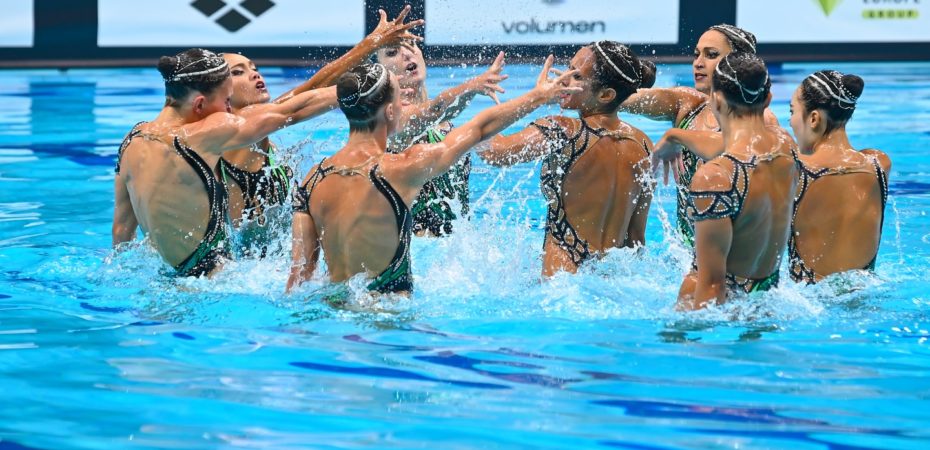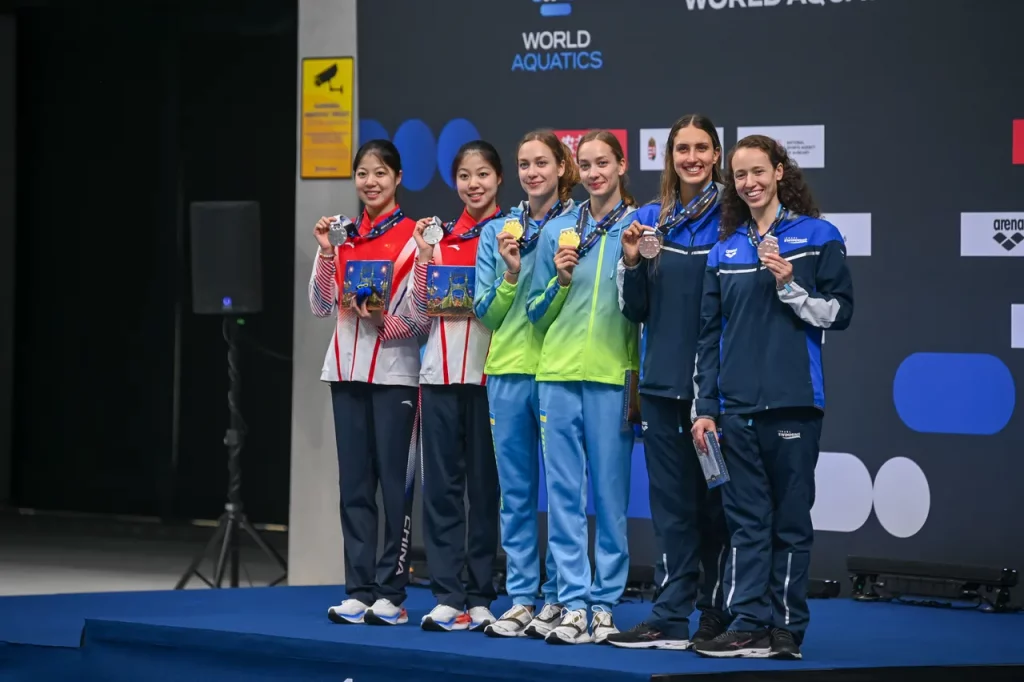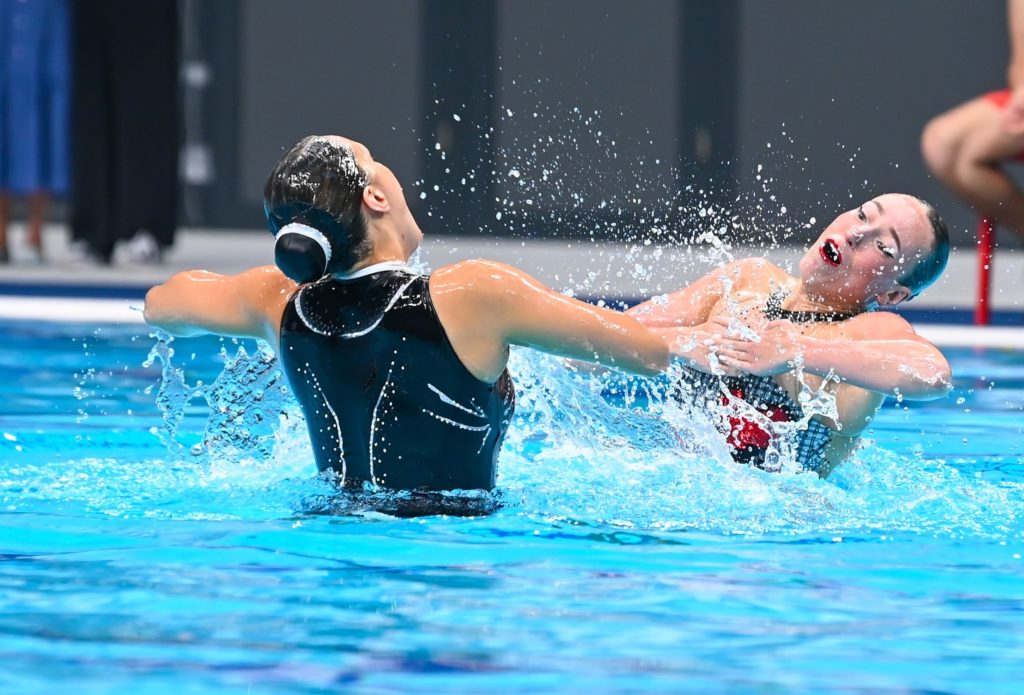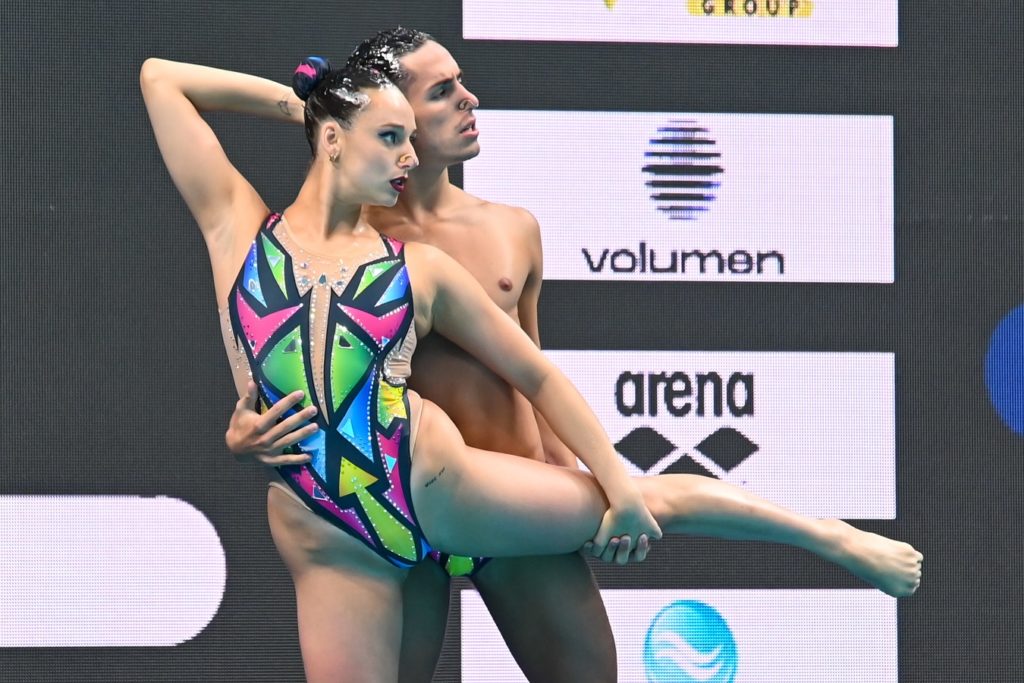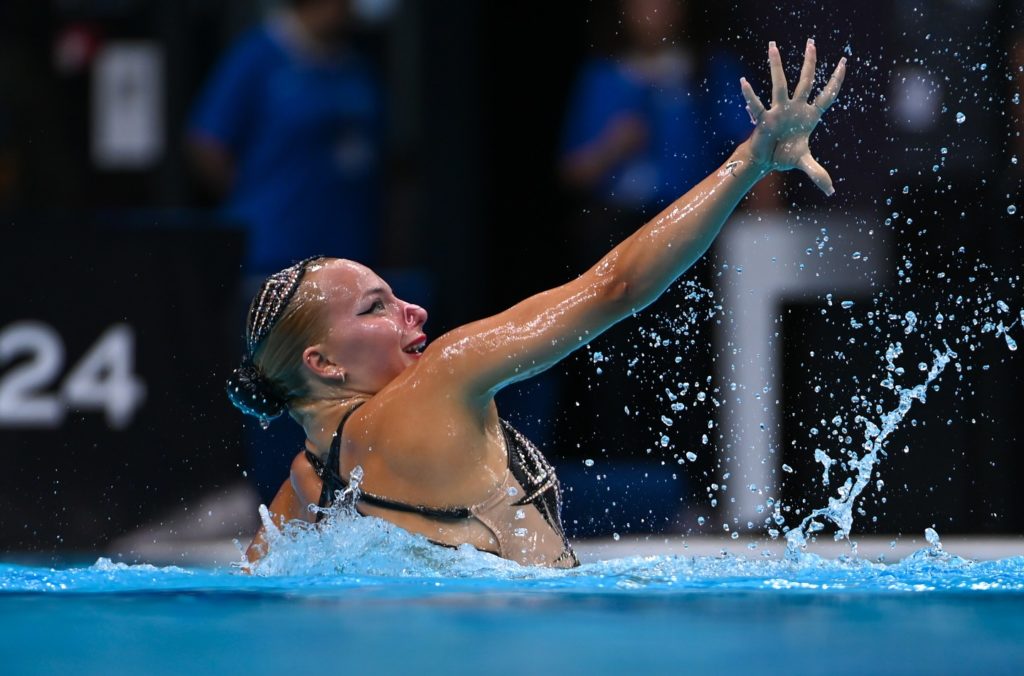The 2024 Artistic Swimming World Cup Super Final in Budapest concluded this season’s circuit with 22 nations participating, including seven bound for the Paris Olympics.
With only 18 days to go until the start of the 2024 Games, and 28 until the first artistic swimming event, most eyes were clearly on these few duets and teams getting one last competition in before the biggest event of the year.
The USA bagged a hat-trick of gold medals, taking the win in all three Olympic team events. While their “Michael Jackson” technical choreography and “Water” free routine have been tried and tested over the last few years, the Americans used this competition to unveil a new acrobatic team.
A slew of social media posts undoubtedly led to this “Sorceresses” routine being the most anticipated one of the meet, and the Americans certainly lived up to the hype. The choreography demanded, and held, everyone’s attention from beginning to end, while some high-flying and innovative acrobatics – including an outstanding and original first platform – rightfully entertained the audience.
They ultimately scored 229.0367, counting one basemark. Of course, they surely have many more tricks up their sleeve for each routine for Paris – unquestionably like everyone that is Olympic-bound.
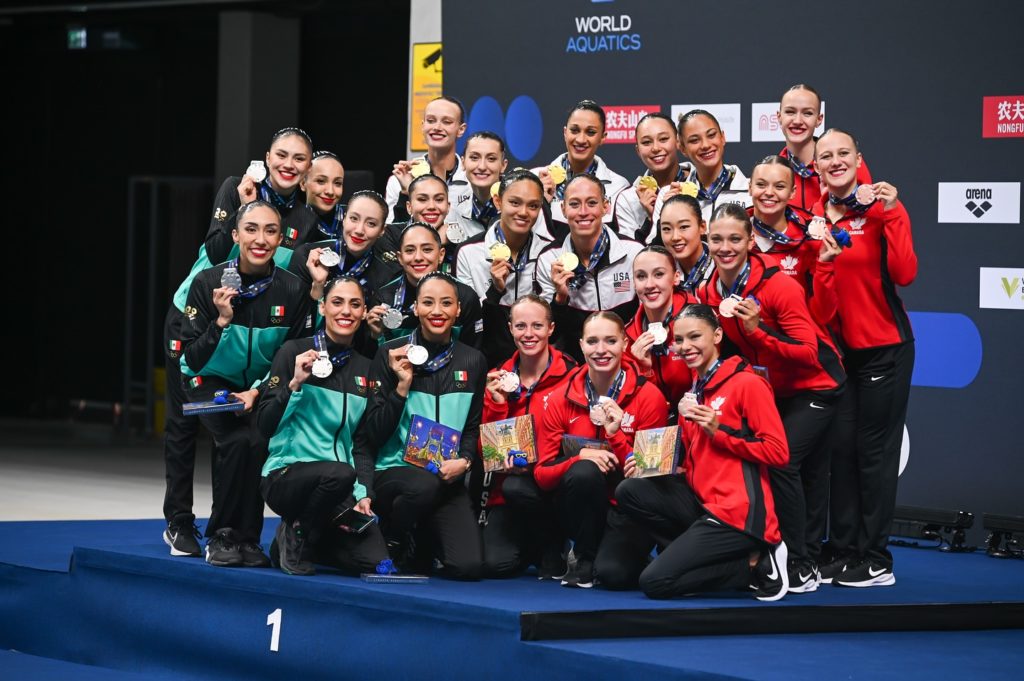
Mexico decided to skip the acrobatic team event this time, and to focus on the technical and free teams, where it secured two silver medals. It was an important outing for the Mexicans in the free event, as they hadn’t competed their “Monarch Butterfly” routine since the Pan American Games in November.
Since then, they have increased their Degree of Difficulty (DD) by over 15 points to reach 62.25, which has now become the highest credited internationally.
As seen in prior World Cups, Canada continued its strategy of aiming for the highest DD at all costs, but it didn’t quite pay off this time. The Canadians received basemarks across all three team routines, but still managed to clinch a silver in acrobatic team, and bronze in technical and free team. In the latter, they had actually declared a massive 65.15 DD, but ultimately had two basemarks.
In the free duet, Audrey Lamothe and Jacqueline Simoneau achieved a high DD of 56.95 on their “Middle Eastern” routine and won the gold with a 272.6457.
The Olympic duets of Australia, Israel, Mexico, Spain, Ukraine, and the USA also competed in this Super Final.
Maryna and Vladyslava Aleksiiva of Ukraine had one of their best swims to date in the technical event to claim the gold with a total score of 260.2700, notably only receiving 0.5 in synchronization deductions.
The twins had originally received one basemark, which ranked them in fourth place. However after a long wait – which even delayed the medal ceremony until later in the day– and a successful appeal against that basemark, they moved up to the top of the podium with their “War Stories” routine.
A few weeks after winning two bronze medals at the European Championships, the duet of Israel had another fantastic showing this weekend. Shelly Bobritsky and Ariel Nassee were very clear and secure in their “Gypsy Dance” technical routine, securing the bronze once again with a total of 247.5649.
They also unveiled a new free duet choreography, set to the theme of “Charlie Chaplin”. Wearing original swimsuits that include a subtle “change” (do not miss it on the deckwork), they got into character right as they stepped out and were captivating from start to finish.
It was clearly a hit for the judges as well, as the two received the highest artistic impression score of the day, which helped them clinch the silver medal with a score of 243.9042.
Joana Jimenez and Nuria Diosdado of Mexico narrowly missed the podium in the technical duet competition with their “80s Mashup” routine, finishing only 0.5066 points behind the Israelis.
In the free event, the two unfortunately had quite an uncharacteristic swim with numerous obvious mistakes, which resulted in three basemarks and a 13th-place finish.
The duets of Australia, Canada, Spain, and the USA also had troublesome performances in the technical event, and will surely want to review their basemarks as well before Paris.
The Australians Carolyn Rayna Buckle and Kiera Gazzard were however solid in their free duet appearance, securing a 195.0875 and a sixth-place finish on their “Kung Fu Panda” choreography.
The up-and-coming pair of Lin Yanhan and Lin Yanjun of the People’s Republic of China were consistent across the board, earning silver in technical duet and bronze in free duet with two basemark-less swims. This was actually the first time the twins competed together internationally in the free duet, as Yanhan had been paired with Xiu Huiyan in previous World Cup legs.
For the other half of the field, this Super Final marked either the last step on the way to the Lima World Junior Championships, or the end of the season, if not of their careers.
After Spain claimed three golds in this Super Final – in technical mixed duet, free mixed duet, men’s technical solo – as well as the prize money in mixed duet, Emma Garcia indeed announced that she was retiring from artistic swimming.
After six seasons as part of the mixed duet, she gets to leave the sport on a high note. In Budapest, she won gold once more in the free mixed duet alongside Dennis Gonzalez Boneu, only a few weeks after becoming European Champion in that event. She also retires as a two-time world medalist (1S, 1B), and a seven-time European medalist overall (1G, 5S, 1B).
Viktoria Reichova of Slovakia also closed out her career in Budapest, with a lot of emotion, pride and peace of mind. The 22-year-old has competed in every World Cup leg over the last two years, notably winning a bronze in solo in Montpellier 2023, and two more bronze medals at the Markham stop in early June. She also appeared at the last three World Championships (2022, 2023, 2024), as well as the 2022 and 2024 European Championships.
After two silver medals in the European Championships, Klara Bleyer of Germany ended her season on a golden note. Performing her “Mandalorian” routine, she won the free solo with a score of 246.7417 with her highest DD yet, 47.65. The 20-year-old also earned silver in technical solo, and less than two points away from Xu Huiyan of China in gold.
Marloes Steenbeek of the Netherlands, who has appeared on the podium alongside Bleyer a handful of times already this year, is keeping her momentum going ahead of the World Junior Championships. A few weeks after winning two bronze medals in technical and free solo in Belgrade, she repeated her feat in Budapest.
In the mixed duet events, Gustavo Sanchez of Colombia competed alongside 17-year-old Emily Minante for the first time. Sanchez had been swimming alongside Jennifer Cerquera since 2018, and as recently as in the Paris World Cup in May.
It was a successful debut for the pair, as they clinched silver in the free mixed duet event with their “From Cali to the World” choreography and a score of 210.6542. They also placed fifth in the technical event.
Kazakhstan, which has been a mainstay on the World Cup circuit this year, secured three more medals in this Super Final – silvers in the men’s free solo and technical mixed duet, and a bronze in acrobatic team. The country also featured two male athletes – Viktor Druzin and Artur Maidanov – in its technical team routine, a first in this specific event.
Gearing up for Lima, the team of Chile competed here for the first time since the Doha World Championships. The squad showcased a new acrobatic routine inspired by the history of Easter Island, and wanted to show an interpretation of the typical dances and music of the Rapa Nui people.
All results are available here.
ARTICLE BY CHRISTINA MARMET
Cover photo: Blasius Photography
If you’ve enjoyed our coverage, please consider donating to Inside Synchro! Any amount helps us run the site and travel costs to cover meets during the season.

